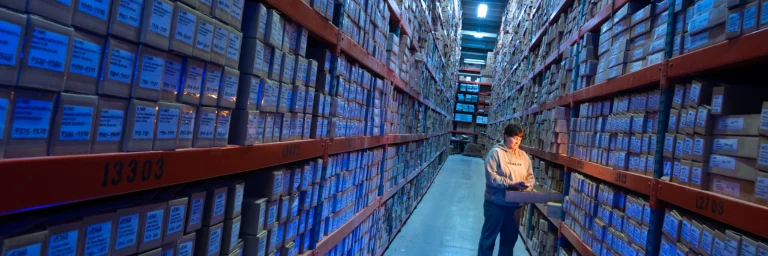Geology Minor
Find answers about the fundamental forces that made our planet.
Gain additional insights and a greater understanding of Earth by joining the Geology minor program.
- Program type:
- Minor
- Format:
- On Campus or Online
- Est. time to complete:
- 1-2 years
- Credit hours:
- 20
Why minor in Geology?
Cutting-edge facilities and extensive hands-on experiences, including a five-week field camp, are hallmarks of UND's Geology program. By the time you finish the minor program, you'll have:
- A comprehensive understanding of geology
- Skills in modern geological techniques and instrumentation
- The ability to seek, analyze and present new information — all critical skills to find entry-level work.
Our faculty interests span the globe, and you may have the opportunity to follow them as you participate in joint research; projects in Antarctica as well as other remote locations are ongoing.
What majors pair well with a Geology minor?
Combining a Geology minor with certain majors can enhance your skill set and broaden your career options. Or deepen your expertise with a bachelor’s degree in Geology. Here are some bachelor’s degrees that pair well with a Geology minor:
- Environmental Studies Degree: Combine geology knowledge with environmental expertise to address environmental challenges, such as land use planning, environmental conservation, or natural resource management.
- Environmental Geoscience Degree: Deepen your understanding of environmental processes and their interactions with the Earth's systems, preparing you for roles in environmental monitoring, remediation, or policy development.
- Earth Science Degree: Enhance your geological knowledge with a broader understanding of Earth's physical processes, including geology, meteorology, oceanography, and astronomy, which can lead to careers in education, research, or resource exploration.
- Geography Degree: Pairing a Geology minor with Geography allows you to analyze spatial patterns and relationships between geological features and their surrounding environments, opening up opportunities in GIS (Geographic Information Systems), cartography, or geospatial analysis.
- Petroleum Engineering Degree: Combine geological principles with engineering expertise to specialize in the exploration and extraction of fossil fuel resources, preparing you for careers in the oil and gas industry, including reservoir analysis, drilling operations, or resource management.
- Civil Engineering Degree: Integrating geology with civil engineering provides a foundation for understanding geological hazards, soil mechanics, and geotechnical engineering, essential for infrastructure projects such as building foundations, tunnels, or dams.
UND Geology Program
-
The four-story, 70,000-square-foot Leonard Hall is specifically designed for geology and geoengineering.
-
Travel to exotic geological formations on 10-day spring break excursions with student clubs.
-
Network, travel and find other opportunities by joining clubs such as the Association of University of North Dakota Geologists or Sigma Gamma Epsilon, the national geoscience honor society.
-
Access the largest geoscience library in the upper Midwest, which contains 100,000 maps and 50,000 volumes.
Geology Minor Courses
UND Geology
Leaders in Action
By visiting sites across North Dakota geology students can learn through hands-on experience.
